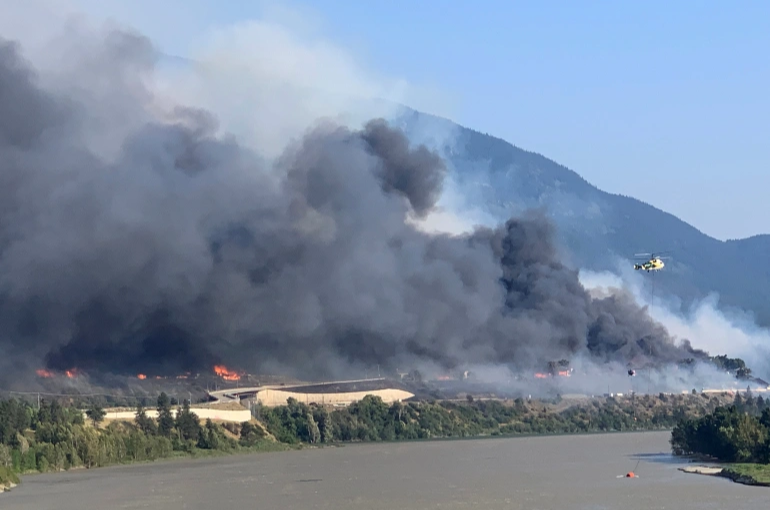
Canada's westernmost province of British Columbia has been regularly experiencing heatwaves and wildfires [File: JR Adams/Handout via Reuters]
New York, October 6 (RHC)-- Human Rights Watch (HRW) has criticized authorities in Canada for what it called “inadequate” support for older people and individuals with disabilities who were hard-hit by a summer heatwave that killed hundreds in the western province of British Columbia (BC).
In a report released on Tuesday, the rights group called on the federal and BC provincial governments to prepare and provide better resources for vulnerable people before the next climate disaster.
HRW also urged the Canadian authorities to stop subsidising fossil fuels to help prevent “the most catastrophic climate outcomes." BC did not have a heat action plan in place when the province saw record temperatures in late June, the rights group said, and a “lack of access to cooling and targeted support for at-risk populations contributed to unnecessary suffering and possibly deaths.”
The severe rise in temperatures was linked to a “heat dome”, a weather system of heat-trapping high pressure. It caused 569 deaths, according to government figures, with temperatures reaching up to 49.6C (121.2F) – a national record.
The HRW report is based on remote interviews with 31 people who described experiencing challenges and adverse health effects as they struggled to deal with the record high temperatures.
“People with disabilities and older people are at high risk of heat stress, but they were left to cope with dangerous heat on their own,” said Emina Cerimovic, senior disability rights researcher at HRW. “The Canadian authorities need to listen to and provide much better support for people with disabilities and older people before disaster strikes again.”
The report noted that some local communities had set up cooling centres but said many people were unable to access them without adequate transportation. HRW also slammed health services in the province, saying that they did not activate their emergency systems until the heat started to ease. “One person said that her 88-year-old aunt who used a wheelchair died on June 28 as a result of the heat dome and had been unable to get through to 911,” the report reads.
The rights group said Canadian authorities have an obligation to ensure equal rights for people with disabilities, calling for “reducing emissions and helping people adapt to current and projected impacts” of climate change.
“Canada’s federal and provincial governments are required to take action to prevent foreseeable negative impacts on rights from climate change, including protecting those most at risk of negative health impacts, such as older people and people with disabilities,” the report states.
British Columbia regularly experiences heatwaves and wildfires, but scientists say climate change is making fire seasons longer and more intense both in Canada and the United States, which also saw record temperatures on the west coast this year.
The province told HRW that it is “developing an extreme heat and wildfire smoke response strategy in 2022-2025”, the rights group said. BC officials have warned residents to take precautions before periods of extreme heat, urging them to seek out air-conditioned locations, stay hydrated, and limit physical activity.

